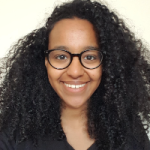I’m starting my first hospital placement in the following days and I’ve been very excited for it. A week placement was arranged for summer term last year which was unfortunately, but of course understandably, cancelled. It feels like this is what I decided to study medicine for. All the knowledge, time spent studying, making flashcards, reviewing lectures will be put into practice in a clinical environment. I’ll see the patients being treated, doctors in their environment, nurses providing care on wards and all the behind the scenes you probably won’t see on TV (the only medical show I used to watch was Scrubs, definitely not a realistic portrayal of a hospital setting, I’d rate a 4/5 for the funny moments interspersed with poignant parts/ethical dilemmas, great for re-runs).
Covid-19 has been on everyone’s minds for the past year and it’s affected all of our lives and put those in the healthcare profession under a microscope. It has definitely highlighted the core reason why they pursue healthcare, because they want to help people and make a difference. Health clearly is an integral part of everyone and therefore so is healthcare. I’m looking forward to personally seeing how our hospitals are working during these difficult times. Studying medicine during pandemic makes it nearly impossible to forget about it, if I’m not studying health then I’m seeing the effects of it on public policy, my community and friends and family.
If you are looking for resources to get a realistic picture of what it’s like in medicine, I read Paul Kalanithi’s ‘When Breath Becomes Air‘ when applying to university which is about a neurosurgeon who becomes diagnosed with cancer at a young age. The book is amazing at exploring the dual experience of patient and doctor through the same person’s lens. Due to its autobiographical nature, the reality of the narrative is very striking.
‘It’s All in Your Head‘ by Suzanne O’Sullivan won the Wellcome Book Prize for its collection of evocative stories of psychosomatic illness. This is an interesting deep dive into the relationship between mental health and physical health by an author who is also a neurologist.
More recently, I’m enjoying listening to the podcast ‘Sharp Scratch‘ by the BMJ, available on Spotify, Apple Podcasts and Soundcloud, which was recommended to me by a friend. It hosts a group of medical students, junior doctors and guests that are experts in their fields having discussions. It has definitely been a great help in answering questions I didn’t know I had or have been too nervous to ask someone. Even when there isn’t a clear cut right answer, there is definitely a productive discussion around the topic at hand. One of my favourite episodes was the enlightening discussion the hosts had on racism in medicine. They also have more light-hearted topics like doctors with tattoos and what to wear on the wards.
Finally being able to go to this placement feels almost unreal, it just feels like yesterday I was stressing about university applications and I was still unsure about pursuing medicine. I know that sounds ridiculous, it being only a couple years ago but the uncertainty is sitting in my stomach right now, my constant companion for days.
I might feel out of place or get a question wrong when the staff test me on something or I might mess up in front of a patient and absolutely humiliate myself. Even though I’ve been studying and I’m not responsible for anyone’s care, I still feel inadequate, which comes in this line of work I suppose. I’m sure the tension of waiting is just heightening my concerns and it is probably feels the same for everyone but that rational line of thinking is being overridden right now.
I’m preparing myself for the dreaded early mornings (I have to arrive by 7.20 most days!) and late finishes which is definitely a realistic look into life after graduation. What I don’t feel prepared for is the patients that are unable to have visitors and potentially patients that might not get the outcome they hope for. These people are very real, in stark contrast to the actors we practice clinical communication with and the fake scenarios we try to diagnose and treat in our tutorials. Emotional distance while being empathetic with patients is something that comes with time I’m told, so even if this is me being thrown in the deep end (more likely gently encouraged, we have attended preparation sessions for this) I’m determined to swim.
Fingers crossed I learn a lot and my placement goes well!



